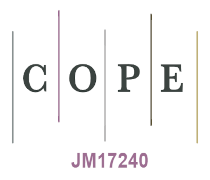Polish Women towards Fertility and Having Children – a Preliminary Report
DOI:
https://doi.org/10.18778/1427-969X.21.02Keywords:
fertility, motherhood, attitudesAbstract
In the developed countries, the age of becoming pregnant and giving birth to the first child is constantly delayed. This trend is also present in Poland. Many women postpone their decision about becoming mothers and some of them do not decide to have a child at all. An important question concerns reasons for postponing the decision or resignation from motherhood. The study was conducted in a group of 247 women aged 20 to 46 years (M = 29.67, SD = 4.54). The participants filled in the Polish version of Attitudes to Fertility and Childbearing Scale (AFCS), which enables the assessment of attitudes in terms of the three components: Importance for the future, Hindranceat present and Female identity. Higher average scores on Hindrance at present were obtained mainly by those women who were younger, single or living in an informal relationship, and those who studied and worked at the same time. The component Importance for the future was relevant for instance for married women. Female identity appeared important for married women living in rural areas. No statistically significant differences were found for level of education or financial status.
References
Australian Bureau of Statistics (2012c). Births 2011. Canberra: Australian Bureau of Statistics
Google Scholar
Astolfi P., Zonta L. (2002). Delayed maternity and risk at delivery. Paediatric and Perinatal Epidemiology, 6, 67–72
Google Scholar
Dzieci w Polsce w 2014. Charakterystyka demograficzna (2015). Warszawa: GUS.
Google Scholar
Doyle J., Pooley J. A., Breen L. (2012). A phenomenological exploration of the childfree choice in a sample of Australian women. Journal of Health Psychology, 18 (3), 1–11
Google Scholar
Gawlina Z. (2003). Macierzyństwo jako wartość w kontekście przemian społecznych. Roczniki Socjologii Rodziny, 15, 33–46
Google Scholar
Graham M., Smith S., Shield M. (2015). Women’s attitudes towards children and motherhood: A predictor of future childlessness? Journal of Social Inclusion, 6 (2), 5–18
Google Scholar
Gurba E. (2004). Wczesna dorosłość. W: B. Harwas-Napierała, J. Trempała (red.). Psychologia rozwoju człowieka. Charakterystyka okresów życia. Warszawa: PWN
Google Scholar
Joseph K., Allen A., Dodds L. i in. (2005). The perinatal effects of delayed childbearing. Obstetrics and Gynecology, 105, 1410–1418
Google Scholar
Kluzowa K., Slany K. (2003). Przemiany realizacji funkcji prokreacyjnej w rodzinie. W: B. Mierzwiński, E. Dybowska (red.). Oblicze współczesnej rodziny polskiej. Kraków: Wydawnictwo WAM
Google Scholar
Kubiak-Fortecka A., Wilczyński J. (2009). Ciąża i poród u kobiet w wieku dojrzałym. Przegląd Menopauzalny, 2, 67–71
Google Scholar
Mills M., Rindfuss R., McDonald P., de Velde E. (2011). Why do people postpone parenthood? Reasons and social policy incentives. Human Reproductive Update, 17, 848–860
Google Scholar
Mynarska M. (2011). Kiedy mieć dziecko? Jakościowe badanie procesu odraczania decyzji o rodzicielstwie. Psychologia Społeczna, 3, 226–240
Google Scholar
Mynarska M., Rytel J. (2011). Pomiar motywacji do posiadania dzieci wśród osób bezdzietnych. Polska adaptacja kwestionariusza motywów rodzicielskich. Polskie Forum Psychologiczne, 19 (4), 522–543
Google Scholar
Rowland D. T. (2007). Historical trends in childlessness. Journal of Family Issues, 28 (10), 1311–1337
Google Scholar
Siuda P. (2009). Eksperyment w Internecie – nowa metoda badań w naukach społecznych. Studia Medioznawcze, 3 (38), 152–168
Google Scholar
Slany K. (2002). Alternatywne formy życia małżeńsko-rodzinnego w ponowoczesnym świecie. Kraków: Zakład Wydawniczy Nomos.
Google Scholar
Slany K., Szczepaniak-Wiecha I. (2003). Bezdzietność – czy nowa wartość we współczesnym świecie? W: K. Slany, A. Małek, I. Szczepaniak-Wiecha (red.). Systemy wartości a procesy demograficzne (s. 155–169). Kraków: Zakład Wydawniczy Nomos
Google Scholar
Sleebos J. (2003). Low fertility rates in OECD countries: facts and policy responses. OECD Labour Market and Social Policy Occasional Papers, no. 15, OECD Publishing, Paris, http://ideas.repec.org/p/oec/elsaaa/15-en.html
Google Scholar
Söderberg M., Lundgren I., Christensson K., Hildingsson I. (2013). Attitudes toward fertility and childbearing scale: an assessment of a new instrument for women who are not yet mothers in Sweden. BMC Pregnancy Childbirth, 13, 197, http://www.biomedcentral.com/1471-2393/13/197
Google Scholar
Söderberg M., Christensson K., Lundgren I., Hildingsson I. (2015). Women’s attitudes towards fertility and childbearing – A study based on a national sample of Swedish women validating the Attitudes to Fertility and Childbearing Scale (AFCS). Sexual & Reproductive Healthcare, 6, 54–58
Google Scholar
Thalberg S. (2013). First Education, then Children? A Qualitative Study of Students’ Childbearing Attitudes and Intentions. Stockholm Research Reports in Demography, http://www.suda.su.se/polopoly_fs/1.295453.1473149659!/menu/standard/file/SRRD_2013_13.pdf
Google Scholar
Thévenon O. (2010). Fertility in OECD countries: An assessment of macro-level trends and policy responses. Work Package 2: Macro perspective on fertility trends and Institutional context,http://vidrepro.oeaw.ac.at/wp-content/uploads/Macro-trends.pdf
Google Scholar









